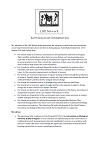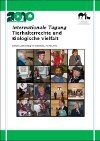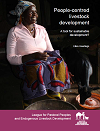A group of non-government organizations has called on governments and international organizations to support the conservation of livestock breeds in their original habitats – and by the livestock-keeping groups that developed them.
Members of the LIFE Network, a grouping of organizations focusing on local livestock breeds, made the call at a conference at Kuttapalayam, in Tamil Nadu, India, on 13-15 August 2010.
The final statement from the conference calls on the Food and Agriculture Organization of the United Nations to promote agro-ecosystems approaches to the management of animal genetic resources and support indigenous and local production systems. These goals are already incorporated in the Global Plan of Action on Animal Genetic Resources.
The NGOs also demanded that livestock keepers be included in the debate about the future of livestock production and to be recognized as guardians of livestock biodiversity.
The conference statement was signed by 21 NGOs from India, South Africa, Kenya, Spain and Germany.
 Title: Kuttapalayam ConfirmationAuthor: LIFE Network / LIFE Network / 2010Description: A group of non-government organizations has called on governments and international organizations to support the conservation of livestock breeds in their original habitats - and by the livestock-keeping groups that developed themFormat: ZipPages: 3Download document
Title: Kuttapalayam ConfirmationAuthor: LIFE Network / LIFE Network / 2010Description: A group of non-government organizations has called on governments and international organizations to support the conservation of livestock breeds in their original habitats - and by the livestock-keeping groups that developed themFormat: ZipPages: 3Download document



